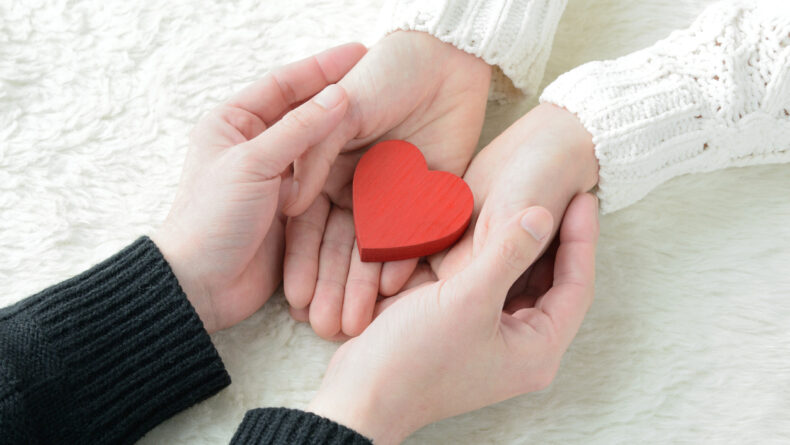Bartenders, Hairdressers Among Top Undateable Male Professions in Japan
Very Specific Dating Don'ts … According To Japanese Tabloids
There are some professions that don’t make the dating grade according to the Japanese — but what makes them so wrong?
“He works all weekend long.” “He’s too physical.” “They don’t have any money.” Those sound like common complaints that anyone on the dating scene might make, but in Japan — you may be surprised to find out — these are in fact referring to specific careers. Yes, that’s right. Having a certain career can kill your love life. Or, at the very least, that’s what Japanese men’s and women’s tabloid magazines (and certain blogs) will have you believe.
The “don’t date careers” trend has been around for a couple of decades now, but hearing it brought up again on a morning TV show this October really got me thinking. I talked to a few friends about it over drinks, and their answers made me think even more about it — so much so that I ended up informally interviewing/surveying about 30 Japanese men and women from the ages of 23-55 about these career biases.
The original “non-dateable careers”
Beginning in the late-90s-early 2000s, women’s magazines like Ageha, AnAn, Can-Can, Non-No and the like surveyed women from all ages and discovered that there were three jobs, referred to as the 3B’s, that were ranked as the least desired professionals to date.
The 3B’s are band members, bartenders, and biyoshi (美容師) or beauticians/hairdressers. These men are often considered as handsome and best-dressed men about town, but they aren’t seen as the ideal partners thanks to their irregular work schedules, less than steady incomes and flirty, womanizing reputations.
Recent changes: From 3Bs to 5Bs
Nowadays, there are anywhere from three to ten B’s, although from 2016 to present most magazines and blogs agree on the 5B’s: bartenders, biyoshi, bassists (the alleged worst offenders of the band member bunch), bloggers and binbo (貧乏) or “broke boys.” These broke boys aren’t poor because of bad planning so much as a refusal to work and/or reliance on mum and dad for their financial needs. Bloggers give the impression of an unstable income, which many women fear may affect their own lifestyle and finances.
Then there are also the 3S to consider. The 3S come across as serious, down to earth men, but underneath that majime (mature) exterior lie womanizing, unfaithful louts — according to recent women’s magazines like GJewel, Pinky Life Magazine, or Lovely, at least.
Seitaishi (massage therapists), shoboshi (firefighters), and sports instructors suffer from irregular schedules as well as reputations for their “animal magnetism.” These jobs all require a degree of physicality and being comfortable with touching strangers, which to a few of the women I talked to, makes “being physically close to them less special and less intimate.” Ouch.
I used to date a drummer, and I never knew where he was or who he was with. He went on tour and came back — married.
What about women?
Of course, women aren’t immune to bias either. Men’s magazines like Men Gym, Uomo, and even GQ have their own “bad jobs for girlfriends” and potential wives lists. Among the least desired professions are nurses, lawyers, police officers, hairdressers, sports instructors/massage therapists, traditional OLs (office ladies), hostesses, and “professional only-daughters.”
Hairdressers, female sports instructors and massage therapists suffer from the same misconceptions as their male counterparts, while traditional office ladies are still viewed by many men as being desperate housewife wannabes. Hostesses are typically expected (if not forced) to provide “extra customer service” in order to earn the big bucks from their club, which isn’t something that many men are willing to accept in a serious partner. Nurses are too busy, lawyers too intimidating and police officers have too risky work.
“Professional only-daughters” refers to daughters of single child families. Thanks to Japan’s aging society and flatlining birth rate, these daughters have the full burden of caring for their parents plus a career to think of, and “they can be the worst kind of husband hunters,” as 31-year-old Satoshi, a participant in my survey, explains.
The hidden 2s
From my own conversations with Japanese men and women, two previously unmentioned professions that also seem to have a bad reputation are delivery drivers for men and eikaiwa (English language schools) instructors for women.
Delivery drivers suffer from two biases from both men and women: namely their irregular schedules and long hours making them less available for dates, and their, uhm, supposed promiscuity (are they really spending all this time delivering?!)

As to eikaiwa workers, for Japanese men interested in dating non-Japanese women, seriousness and jealousy were the two most commonly mentioned issues.
“Very few foreign women live in Japan for more than a couple years, and a lot of them treat Japan like some fantasy land. I could never date one seriously — or move abroad with them when they get bored of Japan. Why should I give up my culture for someone that doesn’t take my country seriously?” (Masa, 31).
“I don’t think it’d be a serious relationship. I wouldn’t want my future wife spending all that time talking to other men — it’s like being a hostess” (Keigo, 29).
Of course, not everyone with these jobs is an undesirable partner, and discounting someone based entirely on their career is needless to say ridiculous, but in Japan at least, there seems to be some truth to these beliefs.
“My younger brother is a bartender. He’s a good man, but he works seven days a week and sleeps all day — he doesn’t have time to date anyone.” (Hiroko, 51).
“I used to date a drummer, and I never knew where he was or who he was with. He went on tour and came back married. His main girlfriend had given birth to their SECOND child and he felt guilty.” (Mariko, 46).
I’ve dated a real estate broker before — he was a lovely, funny guy, but our work schedules never matched up, and even if we were out on a date together, phone calls from his clients or boss came first. A friend dated a binbo before she knew he was broke — he took her to Kyoto for a weekend and got arrested because he was using his mother’s credit card to fund the trip.
While as we can see there are plenty of anecdotal evidence to back up these do-not-date career biases in this group of 30 people, no two people are the same and your decision to date or not date someone should come down to how compatible you are, and how well the pair of you can communicate your own wants and needs to one another. Or … you may consider changing your job? Either way, let all of this be your choice.
What do you think of these perceptions? Are there any other careers that have a bad dating rep?
















Leave a Reply